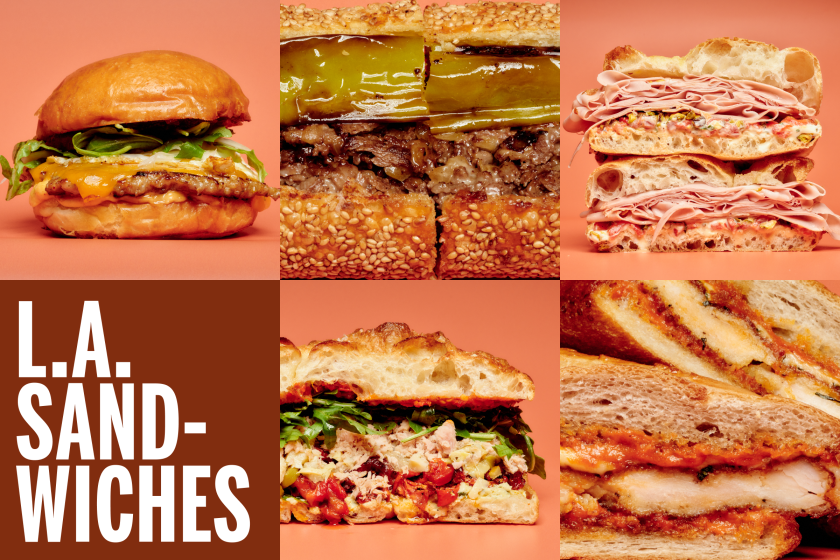Can You Freeze Coleslaw?
“When the phone rings during dinner, it’s usually Bill. “Hi,” says my brother-in-law. “I have a food-safety question.”
Is it still OK to eat the chicken that was defrosted a few days ago? How long does ice cream keep in the freezer? Can you freeze coleslaw? Is the ketchup that has been in the refrigerator for several months safe to eat?
Over the years, the questions have covered the major food groups. Bill, 33, is one of a growing number of Americans younger than 35 who are unsure about how to cook and safely prepare food.
A national survey conducted recently by Cornell University researchers concluded that although all consumers would benefit from more home food-safety education, those younger than 35 need it the most. The researchers said demographic and lifestyle changes and an emphasis on convenience may be the reason many people grow up without learning basic principles of food handling.
The Agriculture Department estimates that 25% of the 7,219 reported food-borne illness outbreaks that occurred between 1973 and 1987 could have been prevented by safe food-handling practices. In fact, the incidence of food-borne disease is on the rise in the United States, according to the Cornell researchers.
The survey, with responses from 869 consumers, found that many respondents didn’t have a clear understanding of food-borne disease terms, nor did they understand proper cooling, cutting, washing and refrigeration procedures. Some did not realize that a food does not have to taste, look or smell bad to contain pathogenic bacteria.
Linda Burkholder, management analyst for the USDA’s Meat and Poultry Hotline, said the Cornell survey confirms findings that although awareness of food-borne illness has grown, “a lot of people don’t know basic rules of food handling.”
One of the most common questions the hot line receives is how long a turkey can be safely kept in the freezer, Burkholder said. A lot of people don’t realize that frozen foods remain safe indefinitely, she said, though taste may be affected.
You can test your own food safety know-how with these questions, asked in the Cornell University study:
* 1. You have a large quantity of leftover stew from supper. Which of the following would you use to store the unused portion in the refrigerator?
(a) The pot you cooked it in; (b) a shallow container; (c) a deep container.
* 2. You are cutting fresh meat for stew and chopping fresh vegetables for a salad with the same knife and cutting board. After cutting the fresh meat you would:
(a) Chop vegetables, then wash knife, cutting board and your hands with soap and water; (b) rinse knife and cutting board, then chop vegetables; (c) wash knife and cutting board with soap and water, then chop vegetables.
* 3. You have prepared oven-roasted chicken breasts in the morning, to be eaten cold at the evening meal. Where would you keep the chicken after it was cooked?
(a) Turn off the oven and keep the chicken there until the meal; (b) let the chicken sit on the counter until it reaches room temperature, then refrigerate it; (c) immediately refrigerate; (d) cover and leave on the counter until time for the meal.
* 4. Botulism is most likely associated with:
(a) Improperly processed canned foods; (b) infected cuts; (c) undercooked pork; (d) raw poultry, eggs; (e) term is unfamiliar.
* 5. Salmonella is most likely associated with:
(a) Canned foods; (b) infected cuts; (c) undercooked pork; (d) raw poultry and eggs; (e) term is unfamiliar.
* 6. Staphylococcus is most likely associated with:
(a) Canned foods; (b) infected cuts; (c) undercooked pork; (d) raw poultry, eggs; (e) term is unfamiliar.
If your quiz results indicate that you need to brush up on safety, get a free copy of “Quick Consumer Guide to Safe Food Handling,” by writing Food Safety and Inspection Service, USDA, Room 1165 South, Washington, D.C. 20250. For quick answers, call the Meat and Poultry Hotline at (202) 720-3333.
Answers: (1) b; (2) c; (3) c; (4) a; (5) d; (6) b.
More to Read
Eat your way across L.A.
Get our weekly Tasting Notes newsletter for reviews, news and more.
You may occasionally receive promotional content from the Los Angeles Times.










